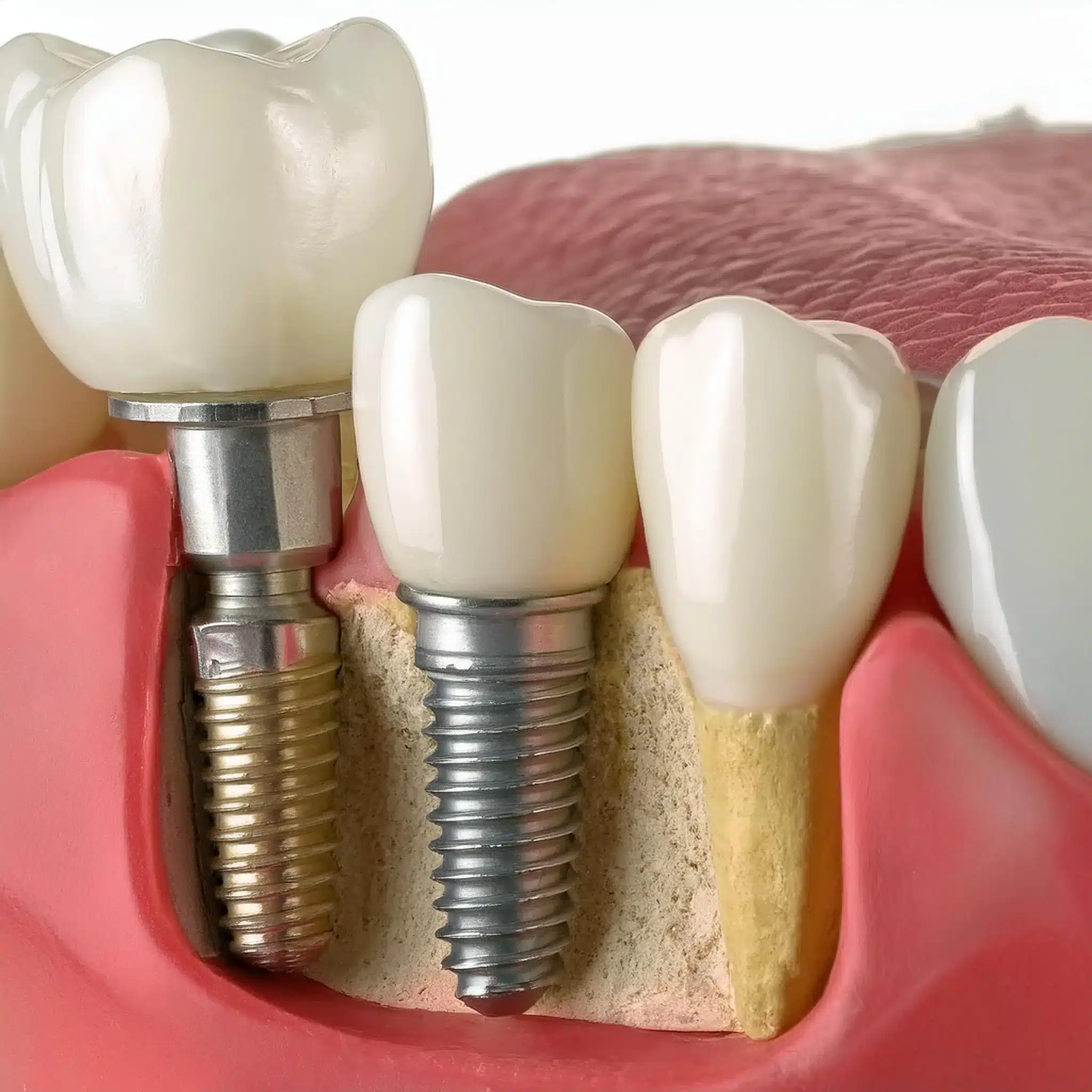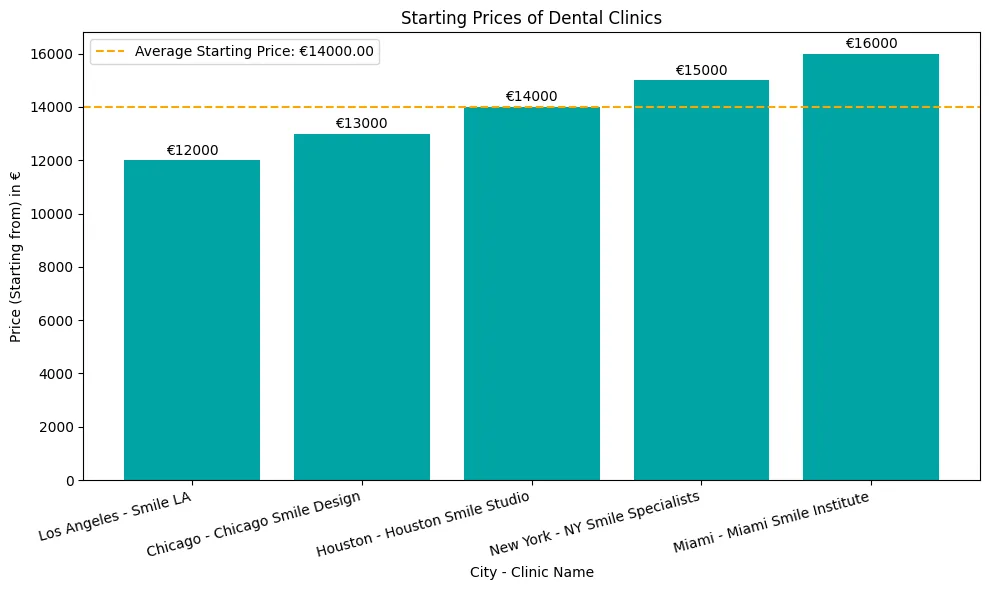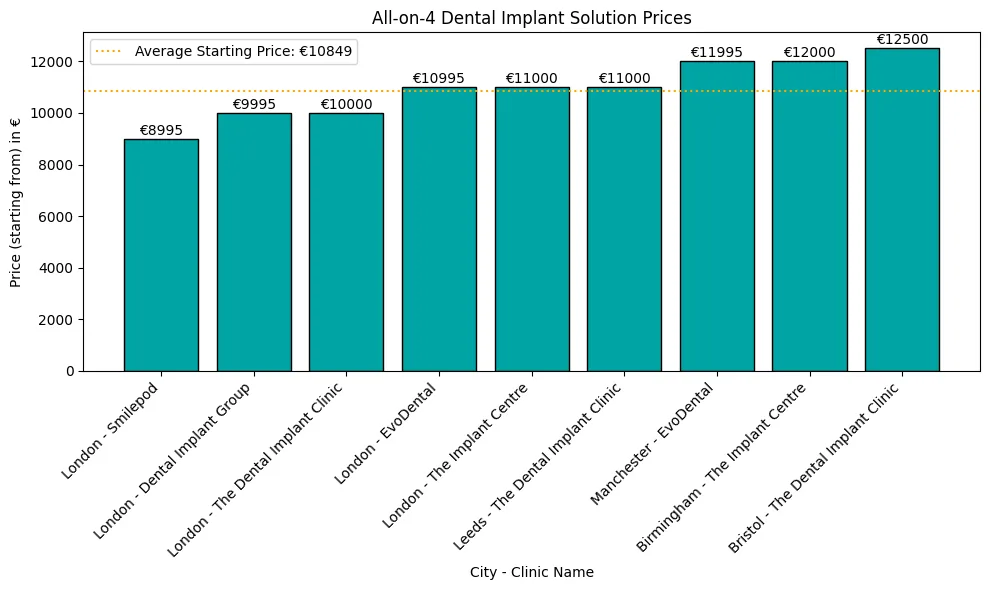Thinking about dental implants but not sure about the process and timeline?
This guide will walk you through the entire step by step process from consultation to final crown.
Dental Implant Step by Step Process & Timeline
The dental implant step by step process & timeline typically spans 3–12 months and involves several key steps:
Consultation and planning
Extraction and/or bone grafting if needed
Implant placement surgery
Osseointegration period
Abutment placement
Crown fitting and placement
The timeline is based on individual factors like bone density and overall health.

Initial Consultation
The implant journey starts with an initial consultation to assess your oral health and plan the treatment. The dental implant process starts with this crucial step, ensuring that all necessary preparatory procedures, such as x-rays or CT scans, are completed before proceeding with treatment.
Examination of Oral Health and Jawbone Density
Full dental examination of gums and teeth.
Jawbone density check to see if it can support the implant.
Discussion of Treatment Plan and Timeline
Personalised treatment plans are created based on your individual needs and health.
Timeline for the implant process discussed, depending on bone density and healing rates.
Case Studies
Case 1: Long term steroid use increases complications, need for customised plans (1).
Case 2: Early loading of nano-coated implants in the posterior maxilla shows stability, affects timelines (2).
Data
Bone Grafting: 4-12 months if needed.
Osseointegration Time: 3-6 months.
Stats
Success Rate: Implants have a high success rate, often 95%+.
Healing Variability: Healing times depend on individual health and bone quality.

Extraction and Healing
Tooth extraction is the first physical step of the implant process, often necessitated by a missing tooth, followed by a critical healing period to prepare the site for the implant.
Managing the gum tissue is essential during this healing process to ensure proper positioning of the abutment and facilitate the placement of the healing collar or temporary tooth.
Time to Wait for Gums to Heal
Healing Time: Gums take several weeks to a few months to fully heal after extraction.
This time allows the site to be ready for the next steps in the implant process.
Factors that Affect Healing: Health conditions like diabetes or smoking can prolong healing times, so treatment timelines need to be adjusted.
Case Studies
Case 3: Immediate implantation in patients with gingival recession highlights the importance of gum health and healing potential before implants (3).
Case 4: Grafting techniques like nasopalatine canal obliteration may be necessary in complex cases to ensure proper healing and implant success (4).
Data
Healing Time Variability: Healing can take up to 4 months in some cases before the site is ready for an implant.
Stats
Success Rate of Immediate Implants: Immediate implants in suitable candidates have same success rate as traditional methods if the healing environment is right (3).

Bone Grafting
Bone grafting is a key step in the implant process for patients with insufficient jawbone density.
This step is particularly important for patients considering dental implants with bone loss, as it ensures the implant has a solid base for osseointegration.
This ensures the implant has a solid base for osseointegration. Various techniques are used, autografts (using the patient’s own bone), allografts (donor bone), xenografts (animal derived bone).
Grafting adds several months to the overall timeline as the grafted bone needs time to integrate and heal.
| Technique | Average Healing Time | Factors Influencing Healing |
|---|---|---|
| Autograft | 4-6 months | Bone quality, graft size |
| Allograft | 6-12 months | Donor bone quality, recipient site health |
| Xenograft | 6-12 months | Animal-derived bone quality, recipient site health |
Implant Surgery and Osseointegration
Implant surgery is the next step in the implant process, where a titanium screw is placed into the jawbone.
Osseointegration is where the bone grows into the implant to provide a stable base for the prosthesis.
Surgical Procedure and Osseointegration Process
Surgical Procedure: The implant is placed into the jawbone under local anaesthesia.
This is done with precision to minimize discomfort and ensure optimal positioning for long term success.
Osseointegration: This critical healing phase takes several months where the bone grows into the implant.
Osseointegration is key to the stability and longevity of the implant.
Case Studies
Case 2: Nano-coated hydroxyapatite implants showed stability in the posterior maxilla, material can make a big difference in osseointegration (2).
Case 3: Minimally invasive technique for immediate implantation in patients with gingival recession showed osseointegration, surgical precision and technique is important (3).
Data
Material: Nano-coated implants show higher integration rates, better bond between bone and implant (2).
Osseointegration Success Rate: With advanced materials and techniques, osseointegration success rate can be above 95% for a strong and durable base for prosthetics.

Abutment and Crown
-
Abutment: The abutment is attached to the implant, a secure base for the crown.
-
Crown: A custom crown is designed and fitted onto the abutment, natural looking and functional.
Case Studies
-
Case 3: Minimally invasive immediate implantation in teeth with gingival recession showed effective abutment and crown placement, precision and technique is important (3).
-
Case 4: Obliteration and grafting of the nasopalatine canal for implant placement showed the need for careful planning and execution in complex cases to achieve abutment and crown placement (4).
Data
-
Crown Material: The type of crown material, ceramic or porcelain can affect the aesthetic and functional outcome of the implant.
Crown Lifespan: With proper care and maintenance, dental crowns can last for many years, 10-15 years or more.

After Surgery
After surgery, proper recovery and maintenance are key to the long-term success of the implant.
This phase is following post surgical instructions and regular dental check ups.
Post-surgery and Implant Maintenance Guidelines
-
Immediate Post-Surgery: Patients should not lift heavy objects, bend or do strenuous activities for at least 24 hours.
-
Dietary: Soft food diet for the first few days to minimize discomfort and promote healing.
-
Oral Hygiene: Gentle brushing and flossing around the implant site to prevent infection and promote healing.
Case Studies
-
Case 1: Long-term steroid therapy can complicate the healing process; we need to monitor and adjust recovery plan (1).
-
Case 3: Minimally invasive immediate implantation technique can reduce recovery time and patient comfort (3).
Data
-
Follow-Up: Regular follow-up with the dentist is necessary to monitor healing and address any complications.
Stats
-
Complication Rate: With proper care and maintenance, complication rate for dental implant is low, less than 5%.
How Long Do Implants Last?
Dental implants are known for their durability and lifespan. With proper care and maintenance, dental implants can last many years, 10–15 years or more.
Factors such as oral hygiene, diet, and regular dental checkups play a big role in extending the lifespan of the implant.
Also, the quality of the implant material and the expertise of the dentist can also affect the lifespan of the implant.

Conclusion & Key-Takeaways
Key-Takeaways
-
Dental implants are a durable solution for tooth replacement.
-
The process involves consultation, extraction, bone grafting, surgery, osseointegration, abutment, and crown.
-
Proper maintenance is key to the long-term success of the implant.
Conclusion
Dental implants are a total solution for tooth replacement; know the step-by-step process and timeline to achieve success.
Dental Implants Components and Installation: The process involves understanding the three main parts of dental implants—the implant, the abutment, and the crown—and how they work together to create a natural-looking and functional replacement tooth.
FAQs
References
Cho JM, Jo H, Jo HG, et al. Long-term steroid therapy and Denosumab treatment leading to peri-implant medication-related osteonecrosis of the jaw: a case report. J Dent Implant Res. 2024;43(3):27-32.
Amin OA, Shehata IM, Kamel HM, et al. Assessment of stability of early loaded nano-coated hydroxyapatite implants in posterior maxilla. J Dent Implant Res. 2024;43(1):1-8.
Article: Assessment of stability of early loaded nano-coated hydroxyapatite implants in posterior maxilla
Park IS, Kim YK, Jeong DG, et al. Minimally invasive immediate implantation in teeth with gingival recession: 3 case reports. J Dent Implant Res. 2024;43(2):9-18.
Article: Minimally invasive immediate implantation in teeth with gingival recession: 3 case reports
Barber D, Beals D, Francis J, et al. Obliteration and grafting of the nasopalatine canal for implant placement. J Dent Implant Res. 2024;43(2):19-25.
Article: Obliteration and grafting of the nasopalatine canal for implant placement




